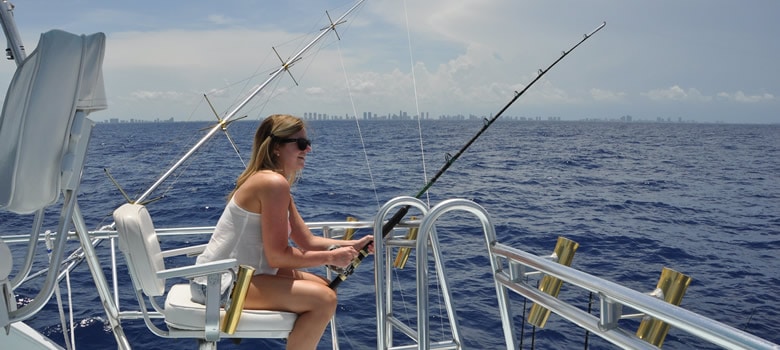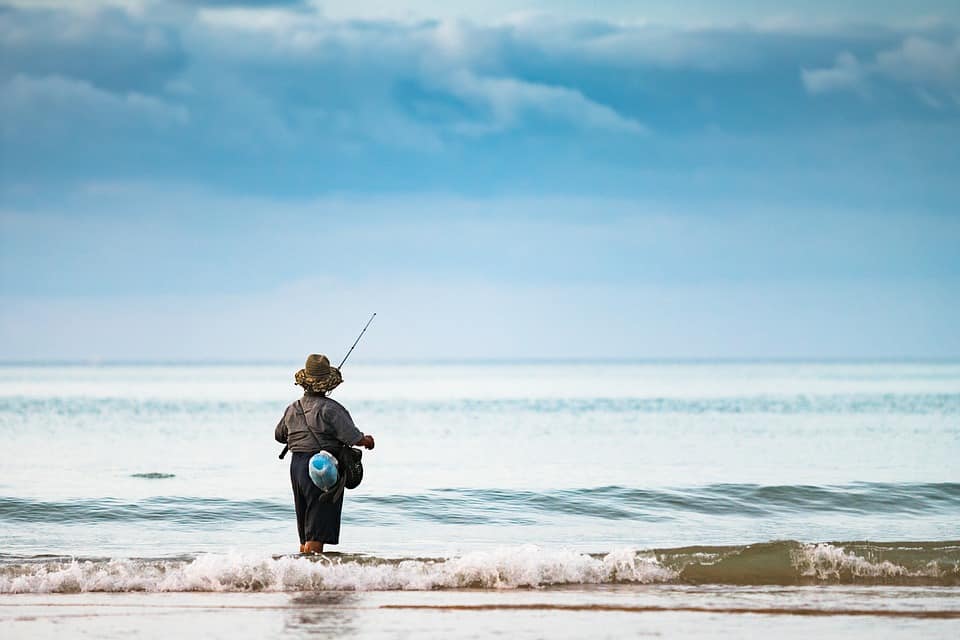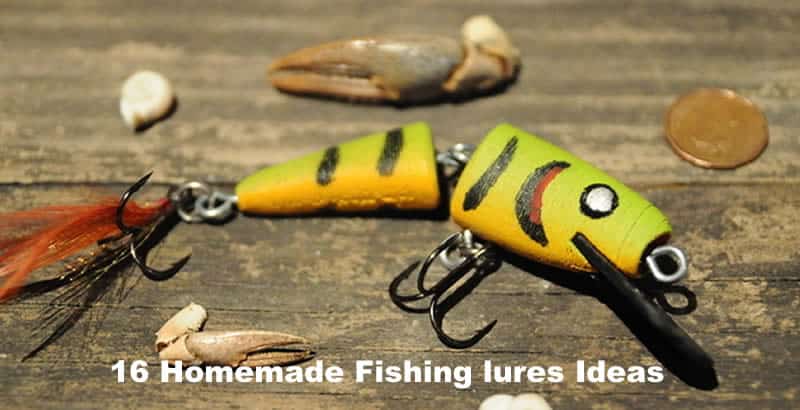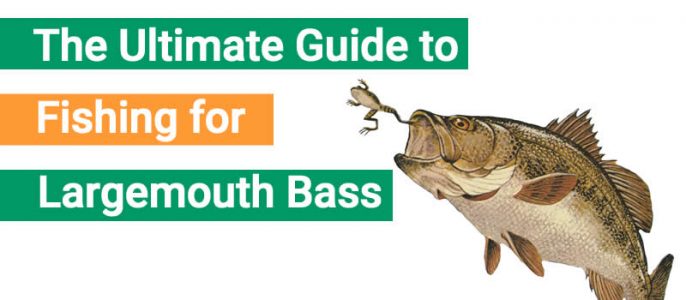If you buy via a link on this page, we may receive a commission, at no extra cost to you.Learn more
Seasickness is quite common in both beginners and seasoned anglers. While it is not a big deal, it is a sensation that will make you feel miserable for a couple of hours, although some people suffer from seasickness symptoms for hours and even days.

Others might not even flinch after getting inside a boat. There are no clear reasons for this. All we know is that it happens, and there are certain things that you can do to prevent it. For example:
- Sleep well
- Don’t read
- Stay hydrated
- Don’t eat too much
- Don’t look through binoculars
- Avoid alcohol
- Stay in a ventilated area
- Keep looking to the horizon
- Take some Dramamine or Bonine
- Bring some ginger with you
- Avoid strong odors
- Keep calm
Sadly, there is no way of telling when you will get seasick. For instance, you can get seasick during one trip and not feel anything during another voyage. So, it always pays to take some precautions. Let’s take some time to understand what seasickness is, its symptoms, and what we can do to avoid it.
What is seasickness?
The first thing that you should know is that seasickness is not dangerous; unless you happen to faint and hit yourself, of course. So, what is seasickness?
It is a type of motion sickness. Sadly, the clear reason and mechanism of action are unclear. But what we can tell you is that it typically happens because of the mixed signals your brain receives. Your ears signal your brain that they are moving due to the shakiness of the boat. But what you see and feel is entirely different. For your eyes and muscles, you are not moving. Thus, your brain gets confused and can’t give a proper response.
In short, the boat movement messes with the vestibular system, which is responsible for equilibrium and perception of space.
Needless to say, motion sickness worsens if you are in a confined space. Thus, as we previously advised, you shouldn’t be in such places.
Which are Seasickness Symptoms?
Motion sickness, especially seasickness, affects each person differently. But the general symptoms are:
- Excessive salivation
- Nausea
- Pale skin
- Shaky legs
- Feeling cold
- Headaches
- Dizziness
- Packing attacks
- Sweating
- Blurred vision
In extreme cases, people could start to hyperventilate and even faint. But this doesn’t happen too often.
The duration and intensity of the symptoms changes from person to person. But it normally lasts between a couple of hours and an entire day.
Preventing Seasickness
Now that we know what seasickness is, we can learn how to prevent or lessen its symptoms. Keep in mind that these are not bulletproof measures, but they will help you to feel better in less time.
Sleep well
Some people believe that you should be as tired as possible before a trip to be able to sleep during the trip. But this is far from the truth. We recommend sleeping well before a trip.
Having enough sleep boosts your immune system, sharpens your senses, and increases your focus. Thus, you will have more chances of starting the trip with your sea legs on. Besides, you will have more energy if you had a good night’s sleep prior to the trip.
The same applies if your fishing trip takes more than a day. Try your best to sleep during the trip. You should try to take a cabin near the boat’s center. It is steadier there, with fewer movements.
Don’t read
Of course, this only applies for the duration of the trip. Nothing will happen to you if you read before or after it. The reason that you shouldn’t read is that your eyes will be fixed on one target while the boat is in movement. Thus, increasing the effects we previously talked about.
The same applies to smartphones or any other electronic device.
Stay hydrated
Staying hydrated is something that you must do, regardless of what you are doing. But since you will be fishing, you start losing fluids faster. Plus, the sun will only increase this process. Thus, it is only logical to keep drinking water to replenish your lost fluids.
Drinking water will prevent dehydration, a condition that inhibits your vestibular system. Thus, making you feel unbalanced, weak, and nauseous.
Don’t eat too much
This one is quite obvious if you ask us. But it still pays to remember it. Overeating is a huge red flag before and during a fishing trip.
Keep in mind that the boat is always moving, even when the engine is turned off. And, since you are moving with the boat, your stomach contents will also move. Thus, you are more likely to suffer from nausea.
Throwing up will enhance your chances of getting seasick. Your body gets weaker, and you will start to panic, two powerful starters of seasickness. Thus, avoid eating highly processed foods and eat plain and high-fiber foods instead. The same goes for anything you eat during the fishing trip.
Don’t go fishing on an empty stomach either. Always eat before sailing!
Don’t look through binoculars
Using binoculars for prolonged periods will increase your chances of getting seasick. The problem with them is that you are staring into something while the boat is moving. Plus, they block your peripheral vision, producing a similar effect to that of reading while sailing. So, try your best to avoid using binoculars, or keep its use to a minimum.
Some people even get a little dizzy while looking through binoculars while standing on firm ground.
Avoid alcohol
Alcohol is another major red flag during fishing trips. First, drinking too much alcohol will deplete your water levels, making you feel dizzy and weak. Additionally, alcohol will dull your senses; thereby, making you prone to suffer from seasickness.
Besides, drinking and fishing are not compatible. You need to be at your fullest to have a chance of landing something.
Now we know that sometimes it is impossible to resist the temptation that a cold beer is. So, remember to drink even more water to countermeasure the alcohol.
Stay in a ventilated area
Nothing increases your chances of getting seasick more than a closed room. So, when sailing, try your best to stick above the deck.
First, feeling the breeze in your face is of huge help to ease seasickness symptoms. Furthermore, in a closed room, your perception of movement is even worse. You see that everything is not moving, but your senses feel the movement. Thus, your brain reacts accordingly. That is, making you feel dizzy and disoriented.
Keep looking to the horizon
Looking into the horizon is one of the best ways to avoid getting seasick. Why? Well, your brain will be aware of what is moving and what is not. Thus, your vestibular system is less likely to keep sending mixed signals.
However, you shouldn’t stare, just look and swing your eyes side to side.
Take some Dramamine or Bonine
These two are over-the-counter medicines that will help you to fight seasickness. They are widely available, and you don’t need a prescription to get them.
We recommend taking one the night after the trip, and another one once before sailing. Try not to take more if you don’t need it, and try to stay below the maximum dosage.
Other prescription drugs could help, but we recommend using these options first. You can then go and ask a doctor for help if they happen to fail.
Bring some ginger with you
Ginger is a powerful ally for those looking for a more natural approach. It helps to ease nausea and digestion. Thus, it will help to ease seasickness symptoms.
Another big advantage of ginger is that it is available in a wide variety of forms. For example, you can take it in its raw state, like a root. Alternatively, you can eat ginger candy or take a ginger syrup.
The main drawback of ginger is its taste.
Avoid strong odors
Unfortunately, strong odors are not always avoidable during fishing trips. But you should try your best to keep away from any fish you happen to catch if you are feeling a little sick. You can get back to business as soon as you are feeling better.
If you are using a motorized boat, try to get as far away from the engine as possible. The fumes could make someone dizzy, so it pays to keep clear.
Keep calm
Ok, we know that it is quite obvious. Still, panicking is among the first things that people do when they start to feel ill. And this will only make things worse for you. Thus, if you start to suffer from nausea as you start your fishing trip, keep calm, walk a little, and take deep breaths. It will take some time. But, eventually, your sea legs will come. And if they don’t, then take a larger break. Don’t push yourself.
First-timers are more likely to suffer from seasickness while fishing in a boat. But then again, keep calm. Many people have a bad experience because they enter the boat with a predisposition. In other words, they get inside knowing that they will get seasick for sure. But the reality is entirely different. A lot of people walk to the boat and fish without a problem. So, visualize the second person if you must think about something before your voyage.
Can I Feel Seasick After I Land?
Strangely as it might sound, you can get seasick after you have landed, especially if you have been fishing for a long time. This happens because your body got used to the constant movement. Thus, as soon as you set your feet into firm land, you will feel that everything is spinning and moving.
Thankfully, the feeling is not as long as the actual seasickness. But it is equally annoying. However, some people could suffer for many days. If this is your case, you should know that you are suffering from Mal de Débarquement Syndrome, which is a condition where you feel that you are still on the boat. It is harmless. Although, you should seek medical help if the condition persists for many days.
Who gets seasick?
Who is more likely to suffer from seasickness is unclear. But pregnant women and children are more susceptible. As a result, they are more likely to get seasick.
Additionally, if you get motion sickness while you are in a car, train, plane, or similar, then you are extremely similar to suffer from seasickness. It is written in stone, of course. But it has proved to be an accurate theory in our experience.
People who go fishing in a boat on a regular basis are less likely to get seasick. Their bodies are used to the rocking of the boat, making them somewhat immune to it.
Why do I only get seasick in some boats?
The bigger the boat, the less likely you are from getting seasick. It is simple physics. Bigger crafts are less likely to rock than small ones. Thus, your ears won’t send signals to the brain that you are moving, lowering your chances of feeling ill.
Moreover, people who go fishing in a kayak or canoe are less likely to suffer from this. This happens because you are moving your arms as you paddle. Thus, your vestibular system knows you are moving and won’t send mixed signals to the brain.
Preventing seasickness
Seasickness is something that affects many anglers worldwide. While it is not dangerous at all, it will keep you out of the game for a little while. And this is something that we don’t want at all, especially if you only go fishing a couple of times each year.
So, it is only logical to build a strategy whose goal is to keep you playing during the entire trip! Sleeping well, staying hydrated, avoiding alcohol and fatty food, and taking some Dramamine are key items of this strategy.
And if you are starting to feel sick, keep calm, breathe, avoid strong odors, and look into the horizon. But remember, it will pass!




